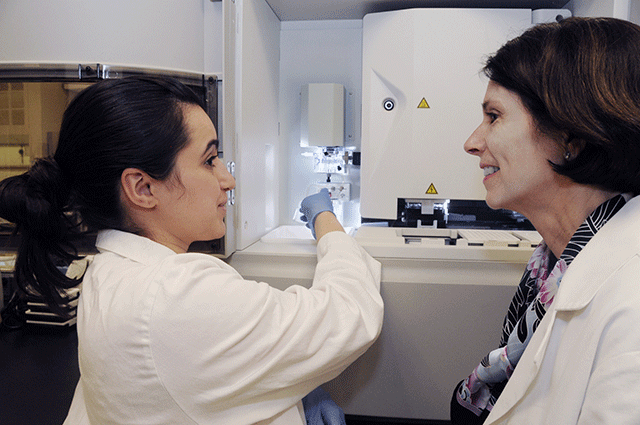
In the Wiggs lab, we are currently investigating the genetics of different types of glaucoma including adult onset primary open angle glaucoma (POAG), pseudoexfoliation glaucoma, and early-onset (childhood) glaucoma. Through collaboration, we also investigate glaucoma-related environmental risk factors and gene-environment interactions. The following are current projects of the Wiggs’ lab:
- Primary open angle glaucoma (POAG): POAG is a common type of glaucoma with complex inheritance. Dr. Wiggs is the PI of the NEIGHBOR consortium of 32 investigators from 12 different academic institutions. In 2012, we completed the NEIGHBOR genome-wide association study (GWAS), identifying a novel genomic region contributing to POAG. With additional NEI funding, we have expanded the consortium (creating the NEIGHBORHOOD), and have initiated new genomic investigations.
- Pseudoexfoliation syndrome and glaucoma: We are currently conducting a GWAS for pseudoexfoliation glaucoma, another common age-related glaucoma with complex inheritance. Previously we found that residing in northern latitudes is an environmental risk factor for this condition. We have also characterized the phenotypic features of a mouse lacking LOXL1, a known genetic risk factor. Our future work will focus on gene-gene and gene-environment interactions.
- Genes associated with ocular quantitative traits that are risk factors for glaucoma: Using homozygosity mapping combined with whole exome analysis and large consanguineous pedigrees from southern India, we are identifying genes contributing to ocular quantitative traits that are risk factors for glaucoma including intraocular pressure, central corneal thickness, and optic nerve parameters.
- Early-onset forms of glaucoma: We have characterized over 500 families affected by different types of early-onset glaucoma and have discovered four novel genetic loci for this condition. We are currently using exome sequencing and other novel genomic approaches to identify causative genes in selected families.
